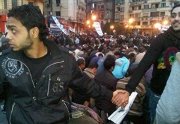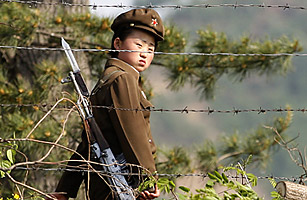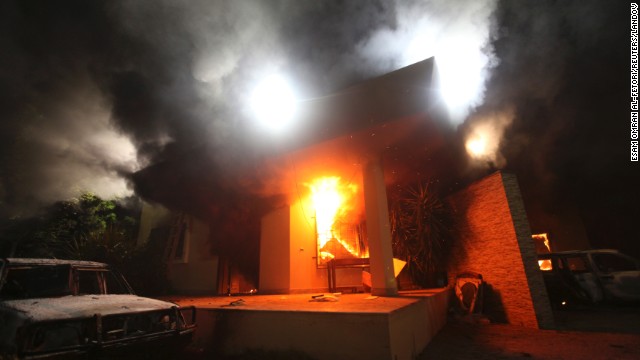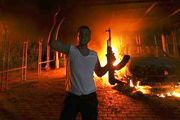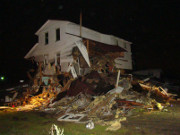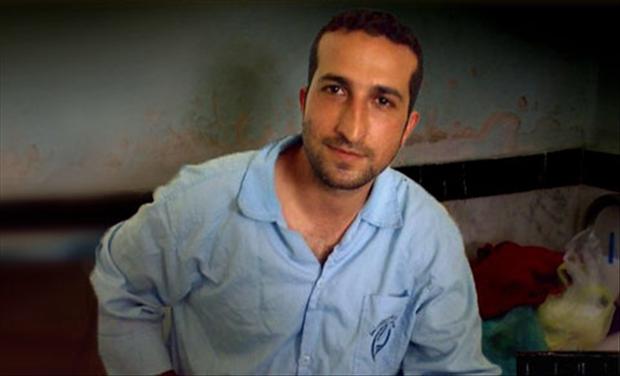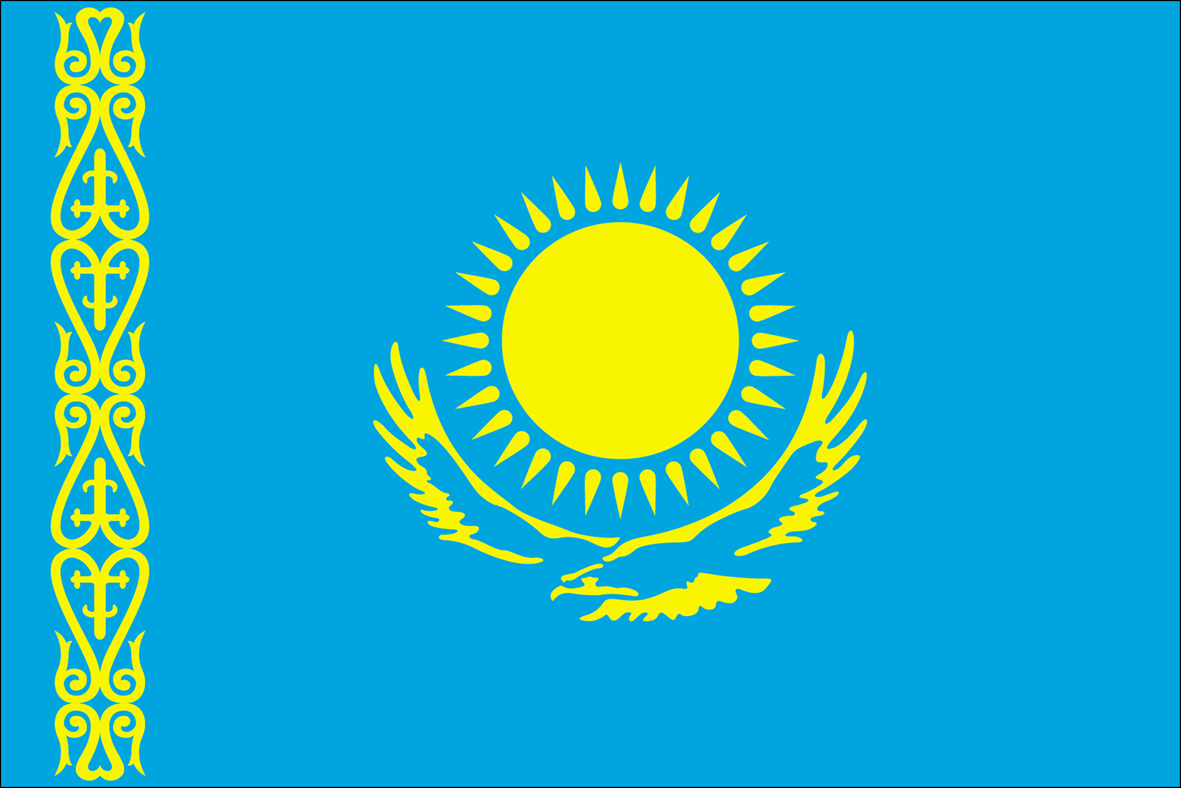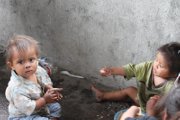By Jeremy ReynaldsSenior Correspondent for ASSIST News Service
KAZAKHSTAN (ANS) -- Friends of Uzbek religious refugee Makset Djabbarbergenov - who has lived with his family in Kazakhstan since 2007 - fear that the Kazakh authorities are about to return him to his homeland.
Kazakhstan is a country in Central Asia and Eastern Europe.
According to a story by Feliz Corley of the Forum 18 News Service, the Uzbek authorities have been hunting him since 2007 for criminal trial to punish him for his religious activity. Police in Kazakhstan's commercial capital Almaty detained Djabbarbergenov on Sept. 5, and two days later a court ordered him held in detention in the run-up to an extradition hearing. He was transferred on Sept. 8 to Almaty's Investigation Prison.
Djabbarbergenov, now 32, is married with four boys, one of whom was born since the family's arrival in Kazakhstan. His wife Aigul is expecting their fifth child next April.
Almaty's Bostandyk District Prosecutor Gani Seisembiev - who presented the detention suit to court - refused to discuss it. "I can't give any information by telephone," he told Forum 18.
His assistant Daniyar Zharykbasov, who prepared the documentation in the case, told Forum 18 the Uzbek authorities put Djabbarbergenov on a wanted list for the Commonwealth of Independent States on Feb. 29 2012 for a "crime" he committed in 2007. "We have to respond to this request," he told Forum 18.
Askhat Primbetov, head of the Extradition Division of the International Co-operation Department at the General Prosecutor's Office, declined to comment on Djabbarbergenov's case.
"When the documents arrive we will examine them and take a position," he told Forum 18. "Until then we can't give any comment."
Asked about the United Nations Committee Against Torture's June 1 finding in a similar case that Kazakhstan had violated human rights obligations by extraditing to Uzbekistan a group of Muslim refugees and asylum seekers in 2011, Primbetov insisted that his government is preparing an official response to the Committee.
"The Committee decision reached us officially only in August, and we have up to 90 days to respond. We are committed to responding." Forum 18 said he declined to discuss the Committee's criticisms of those extraditions.
Zharykbasov of Bostandyk District Prosecutor's Office told Forum 18 that the Uzbek authorities said Djabbarbergenov was wanted under Article 229-2 of the Uzbek Criminal Code, which punishes "violation of the procedure for teaching religion" and carries a maximum term of three years' imprisonment.
He is also wanted under Article 244-3, which punishes "illegal production, storage, import or distribution of religious literature," and also carries a maximum term of three years' imprisonment.
Zharykbasov initially told Forum 18 the extradition case was not about religious activity. But told that the Uzbek authorities are seeking to imprison Djabbarbergenov because he led an unregistered Protestant church in his home town of Nukus in Karakalpakstan, Zharykbasov then expressed some sympathy for him.
"As a person I can say this is not right," he told Forum 18. "But we have to follow the rules. We just collect the documentation, and Kazakhstan's General Prosecutor's Office will take the decision whether to extradite him or not."
Ermik Rakhimbaev of the international department of Almaty City Prosecutor's Office is collecting all the materials related to Djabbarbergenov's case to be sent to the General Prosecutor's Office in Astana.
"We're studying all the documents in the case at the moment and will send them on soon," he told Forum 18.
Rakhimbaev confirmed that Djabbarbergenov has challenged the Kazakh authorities' denial of refugee status through the courts, a case that is still pending at the Supreme Court.
"We'll wait until the Supreme Court has taken a decision," he claimed. However, he was unable to explain why Djabbarbergenov had been detained if the Supreme Court has yet to rule.
As they did not know where to find him, in late August police seized Djabbarbergenov's sister-in-law and held her for two weeks, family members complained to Forum 18. She was initially held at the police station before being transferred to a center for the homeless.
Eventually police found the telephone number of his wife, Aigul, in her mobile phone. Police seized her, and then came to the family home in Almaty on Sept. 5 and arrested Djabbarbergenov. According to Forum 18 his sister-in-law was released on Sept. 8.
Both Zharykbasov of Bostandyk District Prosecutor's Office and Rakhimbaev of the city Prosecutor's Office said they had no information about the two-week detention of Djabbarbergenov's sister-in-law.
Forum 18 said the detention request for Djabbarbergenov was prepared by Bostandyk District Prosecutor Seisembiev. It was approved by Bostandyk District Court No. 2 on Sept. 7, the court chancellery told Forum 18.
"They didn't tell us or the UNHCR office about the hearing," Aigul Djabbarbergenova complained to Forum 18.
"They gave Makset a state lawyer rather than allowing him to find his own. They claimed to me later that they had informed us about the hearing, but they didn't."
Zharykbasov of Bostandyk District Prosecutor's Office denied her claims to Forum 18. "The police told her about the hearing, and he had a state lawyer because he had no money to hire his own."
The UNHCR office in Almaty declined to comment to Forum 18 on Djabbarbergenov's case, citing individuals' confidentiality.
Forum 18 said Djabbarbergenov had led a Pentecostal community in his home town of Nukus, the capital of Uzbekistan's autonomous republic of Karakalpakstan, from 2001. He had been fined for his religious activity and had his home raided and Christian books confiscated.
He fled in Aug. 2007 after anti-terrorism police raided his home, claiming he was holding an "illegal" religious meeting. Police detained him, but did not prevent him leaving the police station several hours later to attend to his distressed wife Aigul, who was seven months pregnant.
Soon afterwards, Djabbarbergenov left Nukus for the Uzbek capital Tashkent. On Aug. 20 2007, Nukus police issued a wanted poster (seen by Forum 18) stating that he was a follower of Isa Masih (Jesus Christ) and was being sought to face charges under Criminal Code Article 229-2. Police confirmed to Forum 18 from Nukus in Oct.2007 that they were still hunting for Djabbarbergenov.
To evade arrest, Djabbarbergenov crossed into Kazakhstan on Sept. 11 2007, where he sought refugee status with the UNHCR. His wife and children joined him in 2008. The UNHCR's office in Almaty acknowledged in writing his and his family's status as refugees in a 2008 certificate, seen by Forum 18.
"As a refugee," it said, "he is a person of concern to the UNHCR, and should, in particular, be protected from forcible return to a country, where he would face threats to his life or freedom."
On March 3 2011, in a document signed by its deputy chief Lt-Col. Askhat Butunchinov and seen by Forum 18, Almaty City Migration Police rejected the appeal for refugee status from Djabbarbergenov, his wife and four children.
It claimed that he did not meet the eligibility criteria for refugee status under Kazakhstan's Refugee Law.
"According to Article 12, Part 1 of Kazakhstan's Refugee Law there is no ground for granting refugee status," Forum 18 reported the rejection letter claims. The letter said they were entitled to challenge the rejection in court.
Successive court decisions - seen by Forum 18 - rejected Djabbarbergenov's appeal against the Migration Police's decision.
The first came in a Oct. 17 2011 decision by Court No. 2 of Almaty's Almaly District. This was upheld by the appeals division of Almaty City Court on Dec. 6 2011. A panel of three judges at the cassation division of the same court rejected his further appeal on Feb. 2 2012.
Forum 18 said the court decisions agreed with the Migration Police's claim that Djabbarbergenov did not meet the eligibility criteria for refugee status. They claimed he had not presented sufficient evidence of his claims that he would be persecuted for his faith were he to be returned to Uzbekistan.
Forum 18 said Djabbarbergenov then filed an appeal to Kazakhstan's Supreme Court. However, as of Sept. 10, the Supreme Court had given no date for any hearing. Telephones at the Supreme Court's relevant departments went unanswered each time Forum 18 called that day to find out when the case will be heard.
Forum 18 said on May 29 2008, the KNB seized Djabbarbergenov on the street near his Almaty home in an attempt to expel him back to Uzbekistan. The Uzbek authorities had claimed to the Kazakh authorities that he is an Islamic fundamentalist and terrorist
The Almaty office of the UNHCR confirmed to Forum 18 on June 3 2008 that Djabbarbergenov had been detained by the Kazakh KNB as a result of an inquiry from Uzbekistan and was released on UNHCR's request.
Forum 18 said Kazakhstan has earlier sent back refugees to Uzbekistan. On June 9 2011, it sent back 28 men wanted by the Uzbek authorities on anti-state and religion-related charges, despite protests by human rights defenders. Relatives of the men say they were peaceful Muslims the authorities were seeking to punish for their religious activity.
Representatives of the men complained to the UN Committee Against Torture, arguing that they were at risk of torture if they were returned to Uzbekistan. On June 1 2012, the Committee ruled that Kazakhstan had violated its commitments under the Convention against Torture and Other Cruel, Inhuman or Degrading Treatment or Punishment.
Forum 18 said the Committee noted that the men were detained as soon as they arrived back in Uzbekistan, and that some at least had received prison terms of more than ten years.
Kazakhstan had told the Committee that it had received "written guarantees from the General Prosecutor's Office of Uzbekistan that the complainants' rights and freedoms would be respected after the extradition and that they would not be subjected to torture or ill-treatment."
However, Forum 18 said, the Committee noted that Kazakhstan's accepting such assurances without close monitoring of conditions in Uzbek detention was not enough.
The Committee Against Torture said the men should be brought back to Kazakhstan and given compensation. It asked the Kazakh authorities to respond to the findings "within 90 days."
Forum 18 said while Primbetov of the General Prosecutor's Office told the news service his government will respond, the UN Committee Against Torture and Kazakhstan's Mission to the United Nations organisations in Geneva did not respond immediately to Forum 18's enquiries. (END)

